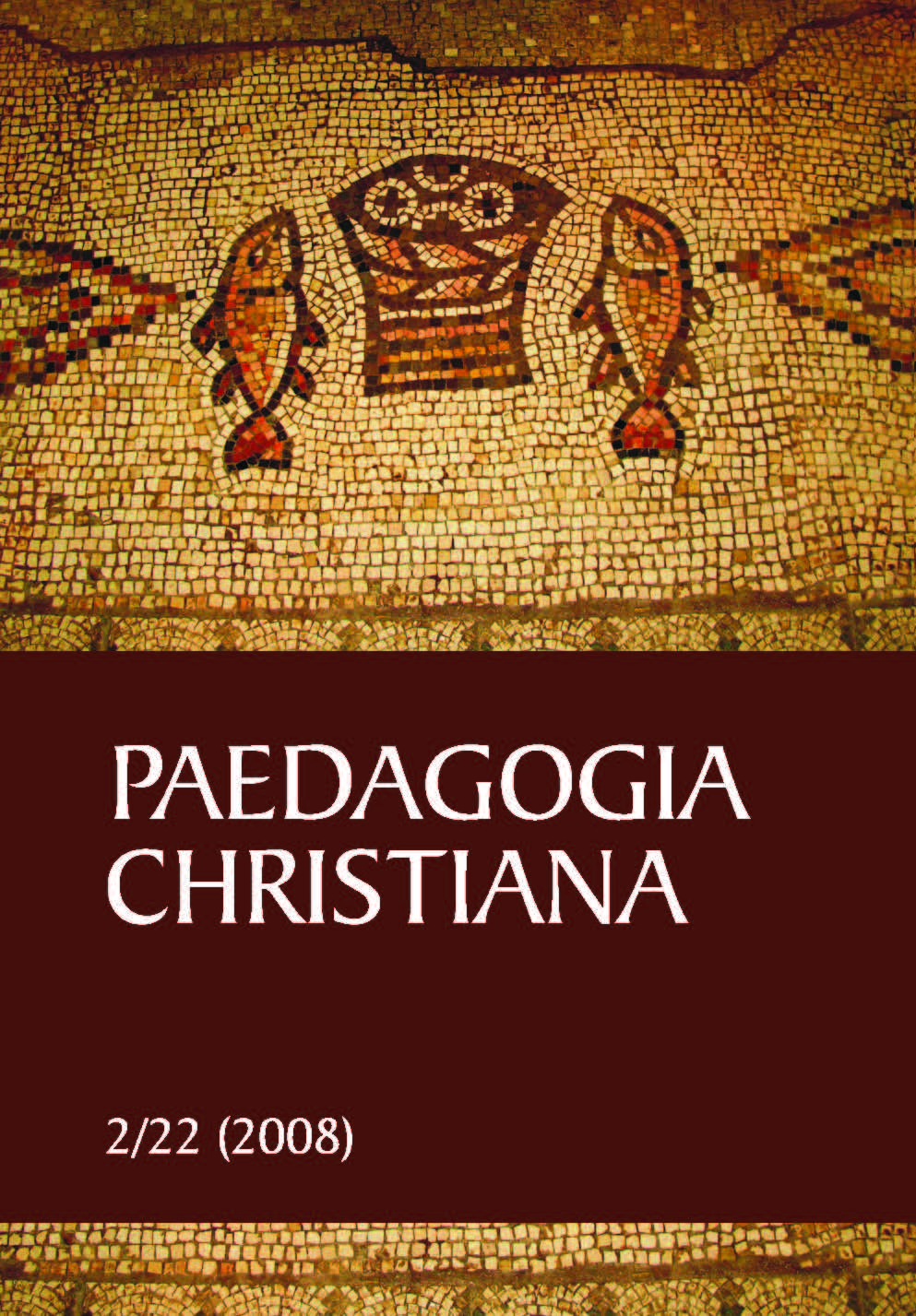Niepokój egzystencjalny a uczucia religijne młodzieży studiującej
DOI:
https://doi.org/10.12775/PCh.2008.019Abstrakt
The author of the article interested in the relationship of existential anxiety and religious feelings towards God, tried to answer the following questions: 1. Do the independent variables – gender and discipline studied, affect: existential anxiety showing up in various worries, feeling of anxiety towards God? 2. Which, how much and in what order, do the independent variables relating to existential anxiety, explain the variance of dependent variables relating to religious feelings towards God?
In the research the following surveying tools were used: The Scale of Existential Anxiety by A. Juros and The Scale of Fear and Fascination by J. Szymołon. The research was carried out in 2002. It encompassed 134 students between the age 19–24 years old; 34 men studying theology (Tel), 30 men studying philosophy (Fil), 37 women studying pedagogy (Ped), and 33 women studying forestry (Leś). All the participants were experiencing God’s presence/absence.
Women studying forestry have lower level of fear of emptiness and senselessness, they are calmer about their future, and believe that they will manage in the future. They show however higher level of anxiety about fate and death then the female pedagogy students. Female pedagogy students are more anxious about confrontation and lack of support from others then male philosophy students. Only the philosophy students had low level of “slave’s fear”. The strongest influence on religious feelings towards God showed the existential anxiety in the form of fear of emptiness and senselessness.
Pobrania
Opublikowane
Jak cytować
Numer
Dział
Statystyki
Liczba wyświetleń i pobrań: 1287
Liczba cytowań: 0



